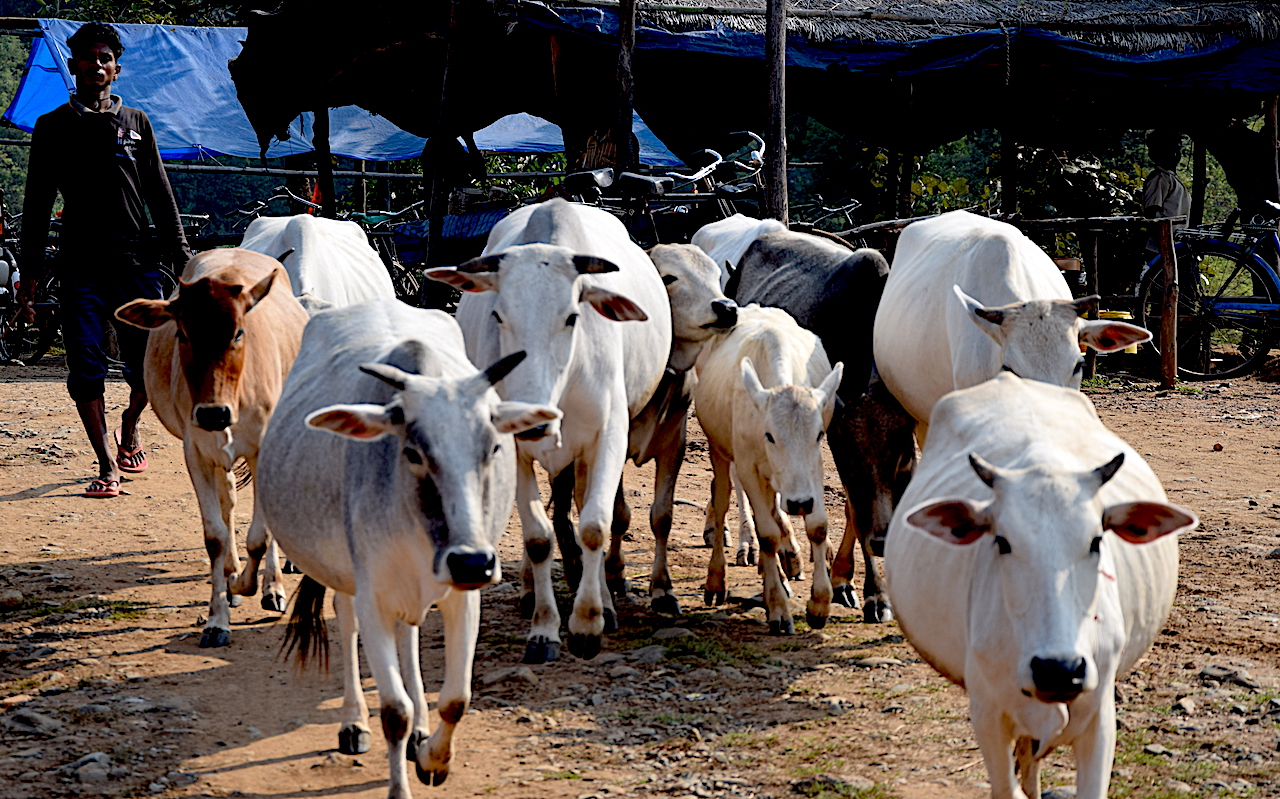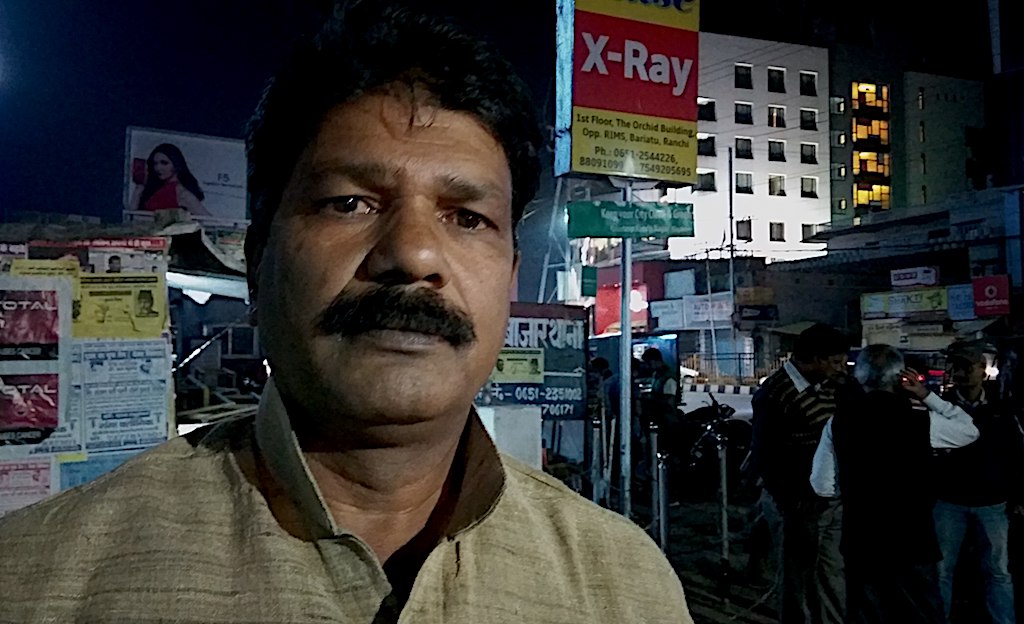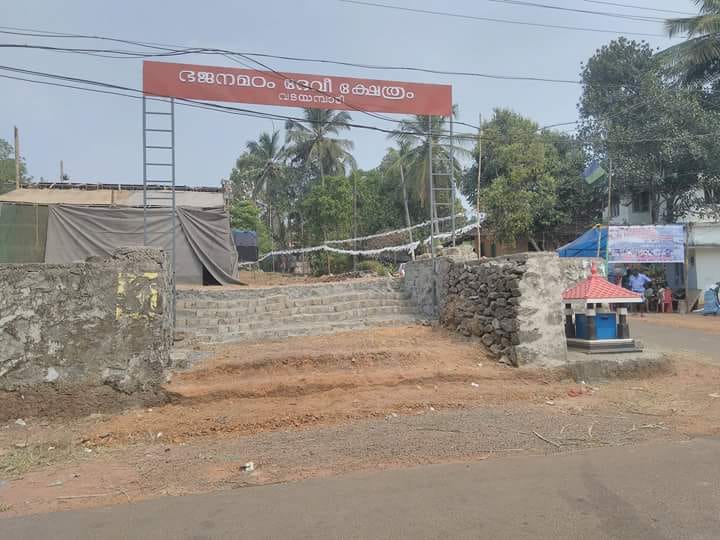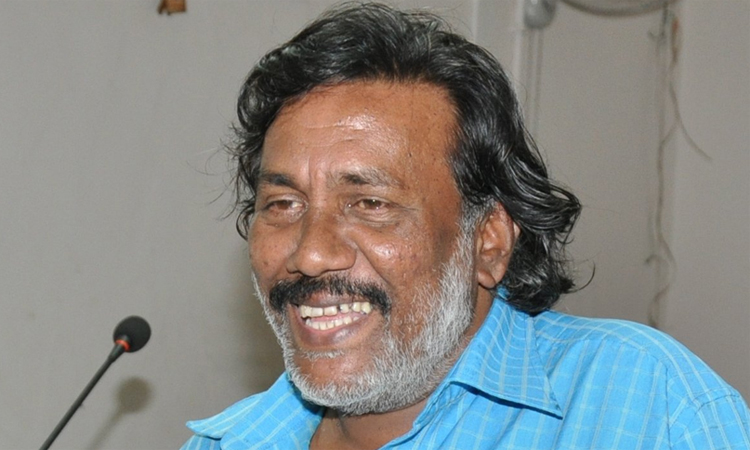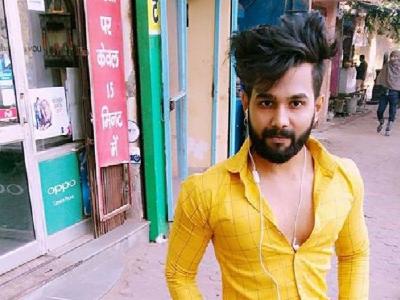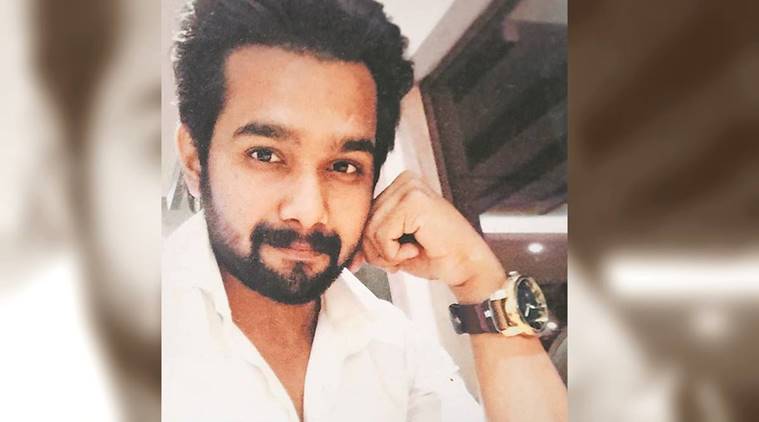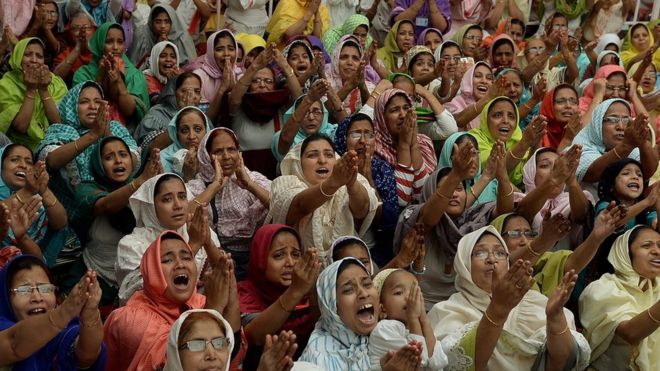Stephen Greenblatt has struck upon a sheer and stupendous idea: to retell the tale of the first couple of the Christian world, Adam and Eve. The Rise and Fall of Adam and Eve is a sweeping work with a remarkably ranging scholarship, galloping through centuries in minutes. The tone and the expanse of the book successfully hide the vertical depth of laborious research that has gone into bringing such an ambitious endeavour into culmination. This is also a book of reliving an ancient art: the bare act of telling a story, holding up the full panoply of its rich narrative contours. The book jauntily speculates as much as it reveals. The very subject matter allows Greenblatt to do so. But there is yet another dimension to this project— a life-long, intense personal engagement with the idea of how conscious human intervention may have altered man’s relationship with whatever is cosmic, mythical and animistic. To that end it is also an ideological book that tells the story of Adam and Eve as it tries to grapple with our modern condition.

This particular civil ideological worldview takes a pressing dimension in a world that is increasingly suspicious of the very idea of human intellect, facts and about man’s capacity to be curious and questioning about his surroundings.On the other hand, this inoffensive worldview is also instructive in showing us the consequences when a critic of fiction is unable to enter the zone of the fictive with the necessary immersion, naiveté and willing suspension of disbelief.
What price such a buffered civility?
The Oxymoronic Art of Real Story-Telling
This is a story of disenchantment by acknowledging, and indeed banking on, the power of being mesmerized by the most ancient of stories in human civilization. Greenblatt believes in the literary and artistic necessities of our existence. Hence, the subject in question. He knows that imagination does augment our living in crucial ways. And yet he is not wholly given to the fictional and the inspirational to the extent he must, as a skeptical historicist, doubt his own allegiance to imaginative art. Art cannot be so extravagant so that its power turns real, he avers. The moment it does, its aura vanishes. Rather, it is always bound within the perimeters of the moral-critical. Art is finally representational and can at best be seen either as allegorical or as typological. But its literal power to whip up a romantic or a cosmic myth must be countered by another ethical schema: that of the tasteful, textual and cultural. Literature must function outside of both radical belief and unbelief.
How does Greenblatt achieve this effect?
Right at the outset of his narrative, Greenblatt admits that he is fascinated by the power of the arche-story’s literal truth among believers. And he wishes to take us through that trajectory. And yet notice the tenor and spirit of his addressing his own fascination with fiction. “How does something made-up become so compellingly real?…What happens when fictional creatures behave as if they were alive? Are they fated, for that very reason, to begin to die?” He is certain that the story, all stories in fact, are human creations, and as such they can be ‘made real.’ Here is the disenchanted and critical reader entering the domain of belief and trying to make ‘sense’ of it. Fictional creatures are products of poesis, figments of imagination, finally representations of the real—not the real itself. Fictional creations perhaps also have trajectories, their own lives, which operate like bell-curves, where every heightening of imaginative and mythical existence must come to an eventual end. Fiction’s literalism cannot be sustained after a point and readers/spectators/listeners can see a story finally for what it is: a story. In fact, Greenblatt categorically says that fictive speculation always comes from our story-telling intelligence. The claim is that there is an adaptive usefulness about stories—as a way of providing pleasure and also transmitting knowledge. If story-telling is a matter of summoning human intelligence, then one can neatly bracket off the hyper-real and the fabular from the domain of the aesthetic and keep at bay a certain skeptical politics that might emerge out of such an immersion in the fictive.
But this specific story of two disarmingly naked individuals and a talking snake is not an ordinary tale of fiction. It seeks to answer a fundamental human curiosity: “Where do I come from?”It also encapsulates how humans treat work, sex and death—characteristics that we share with other animals, as if they are contingent on our particular actions, ones that were initiated by our earliest forefathers. The Genesis story claims that we humans were created in the image and likeness of God who not only created us but also gave us a prohibition. The first couple disobeyed that prohibition. Everything else followed—from shame to guilt to labour to the universal fact of mortality. (Adam lived for 930 years while Eve died ten years after him).
There were competing and more ancient origin stories in Mediterranean culture. One, known as the Atrahasis, recounted the tale of a primordial flood that destroyed all of humanity. Gilgamesh, another such story, related the love of a quasi-divine hero for a human chiseled from clay. And then there was Enuma Elish, the Babylonian story of Apsu and Tiamat, a tale that surely must have influenced the Genesis story-teller. The pious sect of Hebrew exiles had to compete with such popular and powerful tales. The sacred text of Torah (Pentateuch)—the first five books of the Old Testament, helped turn Hebrews, an itinerant, tribal people occupying a precarious territory into Jews. For that to happen it was crucial that a New God with absolute power, Yahweh, was created, along with the possibility of a brand new tale of creation. In the first book of this new story, Genesis—unlike the ones that arrive from antiquity—humans must bear responsibility for their actions and what befalls them. This new story of creation, the dream in Genesis, is also about another crucial change: it is not about leisure but rather about purposive work, tilling and watching, deeds that must come to humans as pleasure.According to Greenblatt the third vital component in this new story is that it captures a deep longing for companionship, a pleasure in the existence of another being with whom one’s life is conjoined—literally—but whose ‘help’ and company completely transforms the first man. This idea of ‘cleaving’ together means that the Genesis story-teller realized the all human work, the audacious acts and the tragic setbacks, must be derived from a sense of shared destiny, though not necessarily a new family unit. Much depends on what one makes of this optimistic notion of companionship.
The story of Adam and Eve actually comes to us from multiple sources and allied, but diverse, literary traditions. The Coptic Nag Hammadi cache is one such source. There is another one simply called the Life of Adam and Eve, which began to circulate in Greek in the first century CE. In these accounts the writers tried to fill up the gaps left in the Genesis story—undertaking to imaginatively address the narrative gaps and ethical conundrums in the Old Testament version. How did the first humans react after the expulsion, perhaps the readers inquired? How did they manage to survive? What did they say to each other after the expulsion? Did their love prevail? Did they explain their condition to their children—Cain, Abel and Seth? And how did they view their own mortality? Had God been consulting with angels all the while? These questions could be read purely as narrative curiosities in the aftermath of the disaster that these parallel sources sought to quench. It was also speculated in one of the versions that Eve was the one who prepared for a cultural transmission of the oral tale through her offspring, trying to save the story for posterity:
“Make tablets of stone, and other tablets of earth, and write on them my whole life, and that of your father, which you have heard from us and seen. If he judges our race by water, the tablets of earth will dissolve, but the tablets of stone will endure. If, however, he judges our race by fire, the tablets of stone will be destroyed, but the tablets of earth will be fired.”
The arche-mater ensured that no flood or fire could destroy the family saga.
It is here that Greenblatt arrives at the crucial question of the literary nature of the tale and the competing methodological claims that have arisen out of the different reading techniques from quite early on—especially the one that raged between a typological reading and an allegorical reading of the story. The typological reading goes to the heart of radical belief and its messianic potentialities. Typology insists on the historical reality of the events described in Genesis. In the imagination of the early Christian theologians the New Testament fulfilled the promise of the Old—point by point. The day of Christ’s incarnation is connected to the day on which God formed Adam out of dust; the day when the child Christ was put to the breast was the day on which God made the stars; Adam died the day of Christ’s crucifixion at Golgotha; and the day Christ rose from the dead is also the day God mystically created light. The events in Genesis are integral to the whole vision and mission of Christ. No Adam, no Jesus, Greenblatt sums up this mode. A cosmic scheme is thus justified.
But on the other hand, a movement gradually took shape which read the story as ‘speaking otherwise’, summed up in a single Greek word: allegory. Allegorical reading struck at the heart of literal and typological readings of the story. This new way of reading claimed that the narrative must be understood as a series of symbols, as hints towards some philosophical riddle or abstract meaning. Philo, the Greek speaking Jewish philosopher, and interpreters like Origen, for instance, argued that Adam was not a real naked swain, all ready to labour in wilderness but a kind of Platonic idea of the human. He was meant to labour his soul. The tree of life was a symbol of the highest virtue: veneration for God and the serpent was a symbol for pleasure. Paradise became the church, women, self-perception and man, reason.This opened up a route for Jewish exegesis, while the fabulous elements of the story could be kept on the backburner. Storytelling became a cloak for the first time as one could now excavate endlessly, and speculate philosophically upon, the implications of the bare story line and the actions of the characters within.
Thereafter Greenblatt delves further into the various representations of the Genesis story—in imaginative literature, paintings, sketches and sculptures trying to show how, as the reality-effect of the story further deepened in the heart of the devout through such embodiments, the symbolic readings gradually led to skepticism and suspicion about the same effect. The chapter on the artistic depictions of the Fall story is particularly illuminating in understanding Greenblatt’s allegiances and argumentative tenor about life and art. At first he takes up a series of sketches and paintings from antiquity till late medieval times and depicts how the overwhelming sense is that of despair, guilt, loss and shame, like in Hildesheim’s bronze icons or Masaccio’s The Explusion. Jan van Eyck’s redemption of the arche-couple, though not despairing, is starkly real. Bodies were being conferred to the devout in and through such works. These were all acts in typology and in gradual literalization of the event.
It is in Albrecht Durer’s Adam and Eve (1504; which is also the cover picture of the book), that Greenblatt marks a decisive shift in sensibility. What was magical and real until that point in history now turns into something ambiguous and delicate. Durer’s painting does not show the actual act of the Fall but captures on canvas the prior moment, just seconds before the actual event. This very choice makes possible a richer, more skeptical and yet aesthetic response from the viewer. It is in the realm of ‘not quite yet’, the moment of Sisyphean pause perhaps. Greenblatt has taken great pains to explain that it is in this painting that we notice a certain ‘unconstrained’ beauty.And thus, the painting’s perfection. Indeed, he has turned Adam into Apollo. The gates once opened, we now have a series of representations upholding a more optimistic, agentic spirit—from Titian to Cranach, from Tintoretto to Gossert and Michelangelo.There is a new search involved in this shift. Only if one is careful one would notice a subtraction in the density of emotions involved, in this new notion of two perfect and proportionate human beings poised for an artistic resurgence, whereby the conscious artist takes charge of belief and begins to redirect that into our proto-secular selves. In this context, one cannot miss Greenblatt’s emphasis of the pre-lapsarian in picking up the Durer moment. This perfect companionate moment is not in any manner the defining or the permanent state of their relationship though. It is only with the Fall and its aftermath, after all, that the prefiguring of the story of the fraught and yet-enduring relationship between a man and woman gradually begins to emerge.
But it would have been far easier to appreciate Greenblatt’s sensibility had we not encountered a counter-current constantly working even as he tries to celebrate Renaissance artistic autonomy. We notice that Greenblatt’s Durer is a self absorbed artist practicing religion for his own salvation. Durer also started to believe that though such ethereal beauty in the Fall narrative cannot be captured in art, naked bodies must be studied intensely in order to understand both art and creation. He also begins to compare human figures from all around the world. If we could, in our fallen condition, still have a vision of such perfection, human beings would have a different relationship with belief—the divine could now be tested as cultural icons.
The literary equivalent of Durer, for Greenblatt, is of course John Milton. And the tortured relationship that every liberal humanist has with Milton once again sharply comes to the fore in this work. The Whigs never trusted Milton for what they felt was Milton’s religious fanaticism. They found his regicide tracts too extreme and his severe censoring of usury and materialism to be detrimental to the free flow of market economy. Moreover, he was a puissant patriot and a patriarch in real life. His records for imperialistic expansion are also not unblemished (his pronouncements on Ireland are sufficient testimony to give us a sense of this aspect).
And yet the liberal humanists could clearly sense Milton’s magisterial reach. Whatever he touched could hardly be matched by the later liberals. They could see that in many ways he had distilled the Renaissance spirit through his works, his massive erudition and his imaginative but deeply felt ways. They gradually began to appreciate his republicanism, his assaults on the sacerdotal view of kingship, his pleas against the licensing of the press and his anti-clerical arguments for a Protestant toleration. To the Whigs Milton remains a wondrous conundrum.
Greenblatt’s evaluation of Milton is personal as he tries to transpose his relationship with Mary Powell, first of Milton’s three wives, with that of Adam and Eve. Not sex, not shame, not even family values—but Greenblatt concentrates on a loving, giving and minimal ethical framework, that of companionship: “It is not good that man should be alone” is the baseline from which he views the relationship between these two creatures. This state he calls “ravishment and erring fondness,” in which another person complements and certifies one’s own worth—loverly, intellectual, economic and spiritual. More on this anon.
Milton was steeped in scriptural typology, Greenblatt rightly posits. In him, “The Savior’s actual blood cancelled the debt incurred for all of us by the actual transgression of the actual first humans.” But it is amazing that for such a pious interpreter of scripture he was also a supreme artist and hence could simultaneously and consistently tease out allegorical links in his epic even as he sought moral guidance from the scripture. The upward ascent (anagogy) of Paradise Lost (1667/1674) is a combination of ethical lessons, symbolic associations and spiritual intimations. In a manner, it was sheer providence that so many things would magically come together. But it was also a rarest of balancing acts that Milton had to enact after Restoration without compromising an inch of his unwavering belief in the messianic well springs of Christianity that must arrive from the Old Testament. Milton took celestial visitations quite seriously—the muse would arrive to him ‘unimplored’ and as the blind poet would every night dictate verses composed in his heart, to an amanuensis, he could feel an actual, physical ache. “I want to be milked,” he would say, restive. It is in this manner that the literal was made into real and Adam and Eve brought to life through rhythm, rhetoric and the rich sounds of his vernacular tongue in Paradise Lost. Greenblatt concentrates, just as he did with Durer, on the dignity, vitality and independence of the naked pair and not on the abject and misogynistic moral lesson: “Godlike erect, with native hour clad.” The aesthetic reading is clearly tilted towards reading the pair with the vigor of robust youth. Even angels seemed to be depicted in human terms. It was a literal human presence all around and according to Greenblatt, it was this triumph of literature that paradoxically led to the demise of the cult of belief in the myth and the story. It does not much matter to him that Milton was trying to justify the ways of God to men. The quiet intimacy of the married couple seems to be more significant to Milton rather than their tortured state or the vastness and power of the cosmic forces or the vision of magisterial fall or redemption itself.Confronted by the precise twinning-point of the godly, righteous, spiritual awakening with the artistic-rhetorical in European history, the presentist Whig decides to throw away both Milton’s dangerous, messianic Arminian irreverence and his whole theological framework, so that his realism could instead be highlighted as an autobiographical reflection of the marital idea of companionship and optimistic conjugality—a remarkable foreshortening of grandeur. What Greenblatt started with, Milton’s typological interest in the historical nature of the events, is quietly dropped, in the course of his evaluation.This is consistent with the strained, gaping, awkward relationship that Whigs have had with John Milton—right from Shaftesbury and John Toland, from Algernon Sidney to Daniel Defoe and beyond. Needless to say, Greenblatt does not at all get into the social conditions that may have given rise to such embodiments of art.
Doubtful Belief
But the book is hardly just about artistic embodiments or about methods of reading representation. In order to appreciate the ideological project of such a work, one ought to begin by asking how the ameliorating Whig works through life—where godliness and devilry might operate under a carefully constructed mantle. Of course through moderation, toleration, empathy, taste and through a carefully calibrated spirit of questioning that just stops short of being entirely irreverential about restraint, order and discipline. Indeed, the moral arc of critical humanism comprises of a series of acts in discriminating moderation, not an unworthy mode at all, if you believe in the tender emotions derived out of pathos.Some may also call this mode responsible pragmatism. Indeed, at the heart of Whiggery lies this sense of an immense gulf between the realm of the concept of nature and that of freedom and the quest to bridge this gulf. Is there any purpose in nature, he asks? Nature is a beautiful possibility and yet it must be harnessed and regenerated. How can our feelings and sensibilities be congruent to the practice and comprehension of our sense of the ethical? The Whig, for all his acute sensory and aesthetic finesse, essentially believes that “it is not enough to do what is right, but it must also be performed solely on the ground that it is right.” In other words, the free agency of the noumenal self could not be seen as intervening at particular moments in the history of the phenomenal world. But since we are interested to bridge the fractured gulf between the two realms, the satisfying assurance can come from the conviction that the phenomenal realm of nature as a whole is always subject to the freedom of the will, no matter how wayward any sequence of events in the realm of nature might seem to the demands of practical reason. This freedom of the will could then be bounced off the other only through a process of mutual recognition. This is the very basis of civility: mutual recognition and tasteful speech act exchanges.
A professed atomic-empirical-skeptic who wishes to also draw an allegorical ethical wisdom from the Genesis story will have to carve out a method through which he can bridge the gulf between natural skepticism (leading eventually to experimental and practical science) and moral freedom. Allow me to quote a couple of lines. Although the sentences have been picked from two different sections of the book, they depict two conceptual running threads in the book. The two statements are also subjective opinions, that is to say, Greenblatt is trying to situate himself within the welter of moral alternatives that has driven the story of Adam and Eve heretofore.
- “I have no solution to what baffled Darwin himself, but the problem returns us to the continuing life of the story of Adam and Eve. For many people today, including me, that story is a myth.”
- “Millions of people in the world, including many who grasp the underlying assumptions of modern science, continue to cling to the peculiar satisfaction that the ancient story provides. I do.”
In the first sentence there is a forceful declaration that the story is a myth. And from that arche-myth (which itself is a synthesis of earlier, scattered works) successive artistic representations have been derived. As such this has nothing to do with whatever is real and historical. In the second sentence, even after grasping the ‘assumptions’ of science, and thereby making a distinction between the real and the myth, the speaker is seeking something called ‘satisfaction.’ The two operative words: ‘I do’ thunders a powerful spiritual pledge to one’s moral belief. This paradox, a dual susceptibility, resides at the very heart of liberal humanism. What exactly might constitute the moral category of satisfaction? Where does satisfaction lie in the ethical scheme of things? How can it be compatible with a culture of critical skepticism, the legacy of enlightenment to which Greenblatt’s book, life and scholarship are beholden?
Let us return to the moral narrative of the Adam and Eve story. For a man who intimately knew the passions of greed, lust and pride, St. Augustine writes in Confessions: “Our real pleasure consisted in doing something that was forbidden”; and within few years of his completing the book, Augustine discovered an inventory of sins in Adam’s eating of the forbidden fruit: pride, blasphemy, fornication, theft, avarice and murder (since he brought death upon himself). Greenblatt rightly points out that Augustine, stung at the flourishing of allegorical and Epicurean readings, made a special effort to read the tale as an primitive tale of moral judgment, and literally so. Given the enormity of human wretchedness, wickedness had to be punished and piety rewarded. The moral catastrophes that engulf human adulthood—desire, retribution, revulsion—are also fully present in the child, Augustine began to believe: “The baby who cries for the breast and makes his imperious demands for attention, deserves to be rebuked…” Suffering is a given. Most significantly, while for other contemporary believers like Julian and Pelagius the human experience of sexual intercourse was natural and healthy, an essential part of God’s design, Augustine flatly contradicted such a proposition. Instead, for him sexuality carries the evil stain which the Genesis story attests. In an eloquent statement Greenblatt describes Augustine to have believed, as it were, that “human sinfulness is a sexually transmitted disease.” Our whole species, he felt, is massa peccati, a lump of sin. The Fall narrative had to be literally and historically true, even as he embarked on an unfinished work entitled The Literal Meaning of Genesis.
He wanted to get rid of all riddles and enigma around the fable and mark its moral power most literally for the devout. The involuntary nature of arousal troubled him the most—a clear sign of a loss of freedom; arousal was within us and in that sense fully ours and yet was not the executive power of our will. This was the most morally abhorrent possibility. Whose body is it anyway? Freedom was about self-command and inward tranquility. This idea of self-command had little to do with modern idea of the willed and responsible autonomous individual though. Adam was fallen because he craved undue exaltation. In this radical vision, it would only be Jesus, “…the miraculous child of a virgin who became pregnant without the experience of ardor.” Greenblatt’s slant is obvious—he is narrating and yet silently castigating Augustine’s redemptive-historical reading of the Scripture. In fact, Augustine affirmed the goodness of Adam and Eve’s physical natures. Greenblatt’s narrative elides this fact. The literalization was not only a project on Augustine’s part in order to highlight the goodness of creation (contra the Manichees) or the unity of the Bible (contra the Marcionites). A literal Adam was one of the pillars upon which rested the certainty of God’s wrath being quenched and grace being poured out. The humanist looks askance at this redemptive-history. A serious engagement with this typology will give rise to a number of emotional states, but satisfaction is not one of them.
If one is to describe John Milton as someone who had adumbrated modernity, indeed who gave Western modernity a distinct dimension through his stout affirmation of divorce, anti-licensing moves, the principle of regicide, universal education and so on, and in the process, if one skirts the questions of his brooding melancholia,dedicated work ethic, his messianic politics and the cathexis of relational equations in his works and life, the end-product would explain much about the modalities of the particular aesthetic-moral framework that we are trying to explore here. As every undergraduate student of English literature knows, appreciating the relationship between Milton’s religious proclivities and his gender politics begins from reading (and if possible, watching) the commissioned masque Comus that he had penned for the Bridgewaters family, first performed at Ludlow Castle on September 29, 1634. The underlying idea was to counter the charges, trial and an eventual execution that had engulfed the family which concerned greed, incest, debauchery and murder. Possibly in remedy, Milton was called upon to write something in veneration of sexual and relational propriety. Consequently, the masque celebrates the special powers of temperance and chastity. One clearly notices Milton’s personal investment here. He would not let his own soul be clotted and preserve his own body from defilement and contagion through “lewd and lavish acts of sin.” (Milton was mocked by his fellow undergrads at Cambridge as the ‘Lady’). Greenblatt relates how Milton was also ridiculed on his trips to Italy for his over-strict morals. But it must also be remembered that Milton was not making any case for monasteries and nunneries but for the purity of ‘married chastity’. This idea of matrimonial chastity is extended by Greenblatt now, in order to expound the need for a companion and help meet in Eve that Adam apparently summoned. This nature of relational bliss Milton would christen as ‘erring fondness,’ ‘beside the genial bed.’ Marriage is about the pursuit of happiness—not about unbreakable bonds, Greenblatt’s Milton feels. And yet it is a union to bypass loneliness. This is how autonomous humans ‘ought to’ function, Greenblatt seems to aver. Milton indeed worked out a grand vision of the first couple, but it went far beyond artistic dignity and moral independence.The special problem that Greenblatt encounters with Milton is that he realizes Milton is not reading the Genesis story as an allegory at all. The question for Greenblatt is then about how such a theological idea of the real could simultaneously be tailored into a lachrymose and subtracted notion of companionate love. Greenblatt repeatedly marks the term ‘loneliness’ for Adam, which is hardly an existentially charged word in the secular sense. It is all sweetness and light. Eve allowed herself to be led blushing to the ‘nuptial bower’ and he experienced ‘the sum of earthly bliss.’ The bower was private property, of course. But there is a remarkable sleight of hand here, for we realize that private and sweet consummation can keep the theological tradition of real presence away. Is this how Milton evaded his own investment in the order, purity and the theology of real presence? The Whig moral framework is this: do not overvalue either sexual pleasure or religious purity. Concentrate on grace and sublimity instead. ‘True intimacy’transcends all hierarchy and begins to be suffused with love. Moreover it belongs to each individual. Greenblatt thus imputes the modern values of autonomy, equality and caring love to the pair. This anodyne and revisionist plan is neat except that it does not cohere with Milton’s idea of the twosome.
There are several reasons for such a mismatch. Both Adam and Eve are the products of two distinct creations: the first brought them to consciousness while the other put them into a symbolic relationship within the institution of marriage. The pair first comes to acknowledge and know each other. They begin to explore Eden. They fall. One way to read the treatment of the arche-couple in Paradise Lost is as a means of privatizing a new work ethic. This view subscribes to the idea that a new disciplinary corrective method is being enacted in and through the Fall story in early modernity. The very souls of the actors are being disciplined and both the actors, especially the wife, are being made into consenting free subjects while in actuality they are working within the bounds of a new Protestant religious and political economy. The idea of willing participation in loving obedience actually means participating in a disciplinary regimen. The other is its obverse: that love can neither be companionship nor obedience but is a continuous process of negotiation and decision-making and that the consequences of such contingent fumbling and ferreting with attachment must always remain open ended and could lead to disaster.Indeed, that is how one leads up to the Fall and its aftermath: by means of a radical breakdown. Each breakdown is a possibility. The building up of attachment after each breakdown can only be arrived patiently and through a process of narrative and argumentative training such as the one that Adam receives from several angelic messiahs, especially in the final two books of the epic.In these versions providential grace occupies a central place about which Greenblatt is simply silent. If we care to go through the findings of the archeologists, geologists and specialists in church and social history we are likely to encounter all this and more which makes it vastly more complicated and indeterminate than what the tender Whig version wants us to believe. Disobedience and the consequent sense of mortality reveals God’s plan as his Son steps forward in order to save mankind. It is through his exemplary sacrificial life that God tempers divine justice with mercy, grace and salvation. The first mortals were created in glory, and were destined to become more glorious only by letting themselves pass through extreme forms of trials and tribulations. They were created in communion, for an ever-deeper communion. The New Testament describes this communion as “participation in divine nature” (2 Peter 1:4) and explains the process as participation in the life and joy of the Triune fellowship. The path toward this spiritual existence is not a path of smooth ascent, an uninterrupted progression. It is a tortuous process of immersion, dismemberment and restoration. In Paradise Lost, we are stunned to encounter such terribilita.
It is at this stage of the narrative Greenblatt gradually takes us through what he feels is the fall phase of the Fall story in human imagination. The transitional moment in Western history supposedly arrives. Skepticism first sets in as Europe makes contact with other cultures and realizes that there could be other mortals –pre-Adamites—born way before the story of Genesis even came into being. The entire myth now begins to shimmer like a mirage as the interpretations turn more anthropological and historical. There is a brief mention of the Epicurean variety of atomistic skepticism (a late interest in Greenblatt’s works) and the usual suspects in the history of Western radical enlightenment thinkers begin to appear one after another—from Pierre Bayle to Gassendi through Voltaire to Mark Twain, the narrative turns ironical to comic to allegorical once again. Greenblatt’s moral ideological battle lines come to a full circle—the Nag Hammadi codices with their literary skeptical reading seem to be vindicated. Historicism triumphs over mythopoeia and storytelling. And then the inevitable point is reached with Charles Darwin who simply dumps Eden in favour of the Galapagos Islands. Henceforth, the natural world shall be naturalized through natural selection.
But this time we notice an antithetical tendency in the good Whig: a careful reining in and wariness about absolute skeptical ways. Are the generative insights of Darwinism satisfying enough? Is this search for our hominid predecessor, in lieu of the arche-couple, not too messy and too imposed a structure? Can the idea of progress as natural selection be taken too seriously? Greenblatt’s moral core laments the loss of taste and happiness that radical doubt might usher in. He turns jittery. Is not a loss of happiness injurious to the intellect and more probably to moral character?: “The current scientific understanding still lacks—and may never achieve or even want—is the focus on moral choice that lies at the heart of the Adam and Eve story.” Confronted by skepticism that the Lucretian in him ought to support so that it might get better of the melancholic believer, Greenblatt now is unhappy to realize that science is hitting at the very core of a balancing Whig moral universe that must put its faith in optimistic and conscious human agency. The core tenets of radical unbelief seem to him to be as dry and machine-like as the subjective pieties of radical belief. Paradoxically the Whig does not approve of the fact that a radical skepticism may strike at the root of reasonable doubt. Busting such a myth also means getting into the absolute realm of objectivity, sans any co-relational framework. A morally satisfying a tale has now turned into pure fiction, thanks to the advances evolutionary science. The real worry with the scientific method is that we may have altogether abandoned the project of bridging the gulf between the realms of nature and freedom—a precondition for empathy and taste. A veil from our relational and civil existence is taken off and all that begins to seem like mere appearance.
Doubt must be palatable.
The moral narrative that runs through the book is as revealing as the aesthetic choices that Greenblatt makes. It is about the tracing of moral feeling in human relationships and within sublimity in art. It is, as it were, that our response can embody ‘quiet wonder’ and the exhilaration of the ‘splendid’ as long as it comes along with a dulcet sweetness with no threat from either the deep experiential or the genuinely material. The ‘feeling mechanisms’ whereby the actors express their surpassing happiness in just being together are gradually made into ‘normative enactments’ of empathetic group expectations. Actors thus begin to ‘catch’ emotions of companionship and human dignity from other actors. And then begin to conform to group expectations which are an aggregation of a secondary normative enactment.
There could be at least two kinds of interdependency that germinates in the notion of any pre-ordained idea of mutualism based on such nectarous happiness. First, the Kantian argument that says:“because we are dependent rational beings with true needs, we are constrained to act in certain ways toward ourselves and toward others” and that is a good thing. The working of that dependency must keep a space for autonomy (transcendental will) though.This leads to an apology for beneficence (after conducting cost benefit analysis and determining the best-practices). It is an important result of the argument for beneficence that among dependent, vulnerable rational beings capable of mutual aid (Greenblatt’s Adam and Eve, for instance), eruptions of risk tolerance, resource-scarcity, emotional inequity, or breakdowns, do not affect the application or stringency of the duty of beneficence. But we clearly see that such a welfarist scheme does not enthuse both who take literalism and/or pure allegory seriously—in art, science and spiritual quests. Art and life are not exactly enterprises in therapy.
The second thread of moral argument in favour of a mitigating interdependency is of a more ancient vintage—found in the Socratic elenchus or in the Platonic idea of mutualism and community formation. In these formulations, the companion assists the seeker “to make a reasoned choice between the better and worse life.” The ability to make a ‘reasoned choice’ is dependent on the development of a certain quality of attention, which results in the person having “his eyes fixed on the nature of his soul.” This form of affectionate and tender communication supports the development of such attention, by ‘shocking’ the interlocutor or the partner into self-knowledge. Such an approach is designed to effect in the participants a metanoia, a ‘change of mind’ that will regenerate human beings’ quest for refined self knowledge as a way of life. That way lies stability.
There will not be any quick closure about the force and power of this simple narrative of Adam and Eve because the sources and readings of the story have always been rich and diverse.From ancient times, there have been various broad analytical frameworks within which the narrative has been placed: wisdom and beauty perspectives, apocalyptic and cosmogonical perspectives, consciously adopted Greco-Roman perspectives or historicized social perspectives. Given the sweep, The Rise and Fall of Adam and Eve could have been an imposing work, but instead turns out to be a watery variety of a companionate-compassionate perspective.
A lifetime of skirting around majesty.
_________________________
Prasanta Chakravarty edits humanitiesunderground.org and teaches English at the University of Delhi.
Courtesy: Kafila.online
